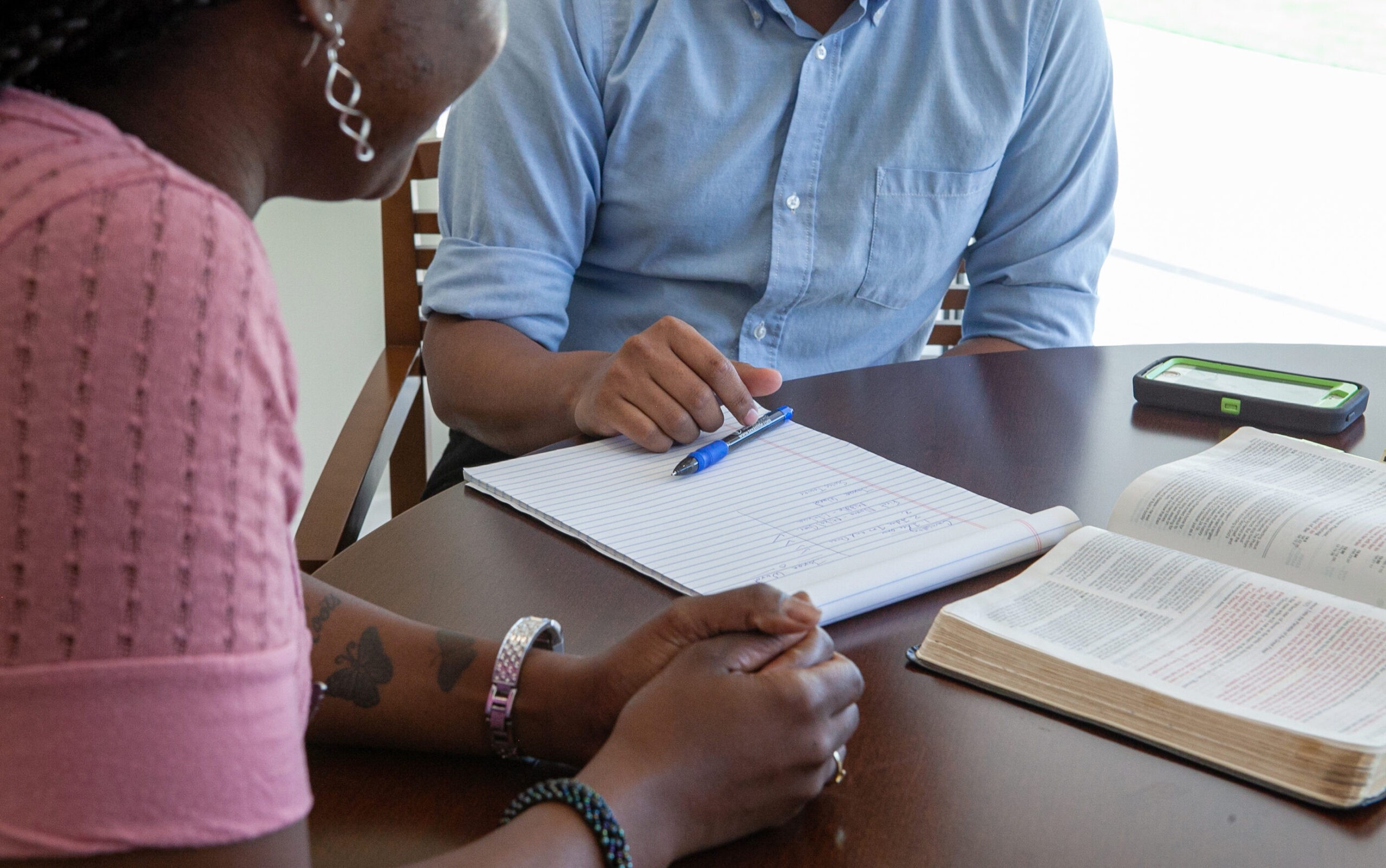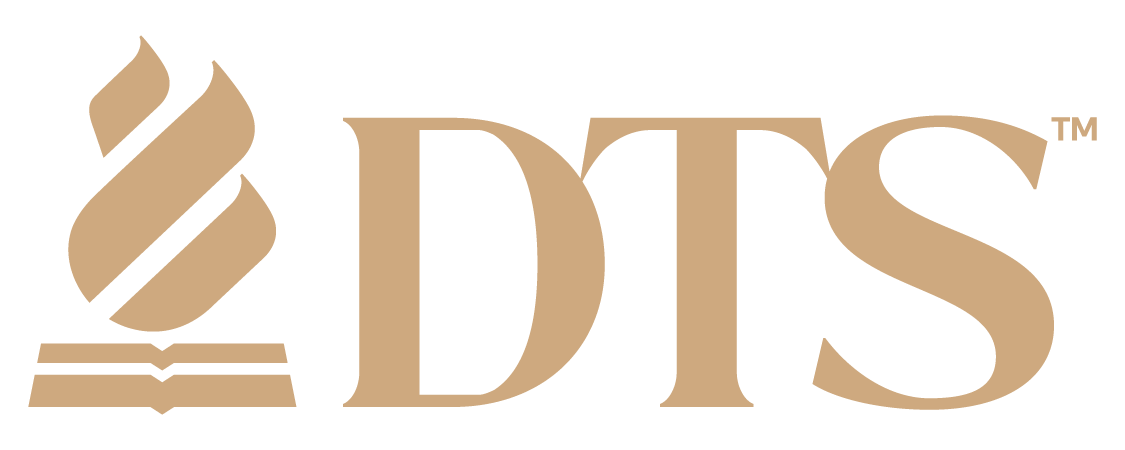
The Doctor of Ministry degree program is designed to enhance the service of those actively involved in vocational or bi-vocational ministry by providing advanced training in the practice of biblically and theologically oriented ministry.
The Doctor of Ministry (DMin) program provides leaders with training in the biblical rationale, sociological strategy, and practical implementation of ministry through group-based cohorts or individualized study.
Requirements
Generally, you need three years of ministry experience and an MDiv or equivalent degree to begin your Doctor of Ministry (DMin).
Admission Requirements
In addition to the common admissions requirements for all degree programs, the following prerequisites normally apply to DMin applicants. All applicants must:
- have at least three years of substantial vocational or bivocational Christian ministry experience since receiving their first graduate theological degree;
- give evidence of growth and competence in ministerial skills and leadership;
- be involved in an ongoing ministry (including lay ministry);
- have an academic record that demonstrates superior ability and shows promise of success in doctoral studies; and
- hold an accredited Master of Divinity (MDiv), Master of Theology (ThM) degree, or a Master of Arts (MA) degree plus leveling courses as necessary to provide MDiv equivalence. Prerequisite degrees and/or equivalence must include three terms of Greek and two terms of Hebrew.
(For certain DTS master’s degrees, the student needs only ID7201 Computer Tools for Biblical Exegesis in lieu of Greek and Hebrew.)
Credits needed to meet MDiv equivalence requirements must cover the breadth and scope of DTS’s curriculum and commitment to Scripture as prescribed by the DMin office. Courses required for MDiv equivalence may be earned at DTS, its extension sites, through external studies programs, or other accredited institutions. For more information on MDiv equivalence, please contact the Doctor of Ministry office.
Applicants must supply the requisite written admission materials and must have a personal or phone interview with members of the faculty. Prospective DMin students may apply for admission at any time. The application deadline for the summer seminar is March 1 and the deadline for the winter seminar is August 1. Further details on admission requirements and procedures are available from the Admissions office.
Transfer of Credit
Transfer of credit for the DMin may not exceed 10 credit hours. Doctoral-level credit completed at another accredited institution may be applied toward the DMin degree if those hours constitute equivalent work. Normally only courses taken after receiving an MA, MDiv, ThM, STM, or equivalent degree can be credited toward the DMin degree.
Course Requirements
The DMin program requires 30 semester hours of course work (which includes from 21 to 24 hours of prescribed and elective courses and from 3 to 6 hours of independent study courses), plus a 3-hour applied research project related to the student’s ministry. The program usually requires at least four years of study.
Normally, three prescribed courses must be taken by all DMin students: DM7101 The Ministry Leader, DM7102 Applied Research Project Development Seminar, and DM7103 The Applied Research Project. Some cohorts fuse the leadership and/or research components into the selected cohort. In addition, students usually complete at least one independent study course, DM7901 Independent Study. Course descriptions for these and other DMin courses may be found in the Course Descriptions section of the catalog.
All courses are six months in length, but include only one or two week residence on the main campus. During the pre-resident months, students read and interact with course material. After the course meets for the resident week, students complete an assignment that is appropriate to their ministry. DTS alumni are allowed to audit the resident portion of a course as space permits. Registration for summer DMin courses must be completed by March 15, and registration for winter DMin courses must be completed by September 15. Electives in the various areas of concentration are listed in the “Course Description” section of the catalog.
All work leading to the Doctor of Ministry degree must be completed in no less than three and no more than six years from the time of matriculation. A minimal grade of B- must be received in every course credited toward graduation and also on the applied research project.
Additional information on DMin policies and procedures is given in the Doctor of Ministry Handbook.
Admission to Candidacy
Students may be admitted to candidacy for the DMin degree by action of the faculty only after these requirements have been met: (1) completion of all residence requirements leading to the degree; (2) the satisfactory completion of a minimum of 21 semester hours of coursework; (3) evidence of proven Christian character; (4) effectiveness in Christian ministry; and (5) adherence to the following doctrines: the authority and inerrancy of Scripture, the Trinity, the full deity and humanity of Christ, the spiritual lostness of the human race, the substitutionary atonement and bodily resurrection of Christ, salvation by faith alone in Christ alone, and the physical return of Christ.
Students applying to candidacy for the DMin degree must also provide a written letter of reference from the local church or organization where the student is serving, endorsing the student’s ministry as well as a personal reference from another source.
Students must be admitted to candidacy before they can register for DM7103 The Applied Research Project. Six of the 9 hours that remain for completion of the degree can be taken concurrently with DM7103 (3 hours).
Applied Research Project Requirements
The applied research project is the student’s major research project in the degree program. It must be directly related to his or her ministry and must make a significant contribution to the field of professional ministry as well as to the student’s personal life. The project normally should deal with some aspect of communication, administration, nurture, leadership, or Christian education. The length is to be appropriate for the subject as judged by the student’s advisors.
If the applied research project is not completed within the first year after enrolling in DM7103, then the student will be required to register for DM7105 Applied Research Continuation each summer and winter term until the project is completed.
Details on the procedures and deadlines for the topic approval and proposal and for first and final drafts of the applied research project are available in the Doctor of Ministry office and in the DMin Handbook.
Graduation Requirements
Candidates for the DMin degree must have completed 27 credit hours of coursework and the 3-hour applied research project, along with any other requirements that may have been assigned. The completion of minimum requirements does not automatically qualify a student for the degree. The candidate must evidence, to the satisfaction of the faculty, proven Christian character, ability and acceptability in Christian ministry, and adherence to the core doctrinal statement. Diplomas will not be awarded, transcripts issued, or placement assistance provided unless all financial obligations to the seminary and/or the student loan program are current.
Cohort Options
Cohort groups move through a select part of the program together, enjoying a community experience with fellow learners and mentor scholars.
Advanced Expository Preaching (Individualized, Cohort)
This emphasis provides advanced training in the art and discipline of expository preaching as practiced in a church context. This specialty will reaffirm and refine the principles of homiletics. The courses will also address leading from the pulpit, long-range sermon planning, and preaching the major biblical genres with accuracy and creativity. This cohort based program will further provide advanced study in audience analysis, variety in sermon structures, mentoring in homiletics, and preaching to the postmodern generation. Key aspects of this cohort specialty are peer-group interactive learning and individual mentoring in homiletics.
Church Health, Leadership, and Multiplication (Individualized, Cohort)
This emphasis provides advanced training in the practice of biblically and theologically oriented ministry for church pastors and church planters. Courses focus on an evaluation of problems, programs, and/or procedures unique to church leaders through case-study methodology, with special attention given to church health, leadership development, and ministry multiplication.
Organizational Leadership (Cohort)
This emphasis provides advanced training in personal and organizational leadership theology, theory, and practice for a wide variety of ministry settings for parachurch, senior-level C-suite leaders in business, or ministry to nontraditional students on their way to strategic leadership roles.
Marriage and Family Ministry (Individualized, Cohort)
This emphasis explores biblical and theological foundations, cutting-edge programs, and ministry education strategies. Certification in the use of research-based tools for marriage and family educators will be included. A major focus will be to design sustainable, context-specific marriage and family ministries, particularly in the church.
Ministry Leadership in International Contexts (Individualized)
This emphasis provides advanced training in the practice of biblically and theologically oriented ministry for those ministering in international regions. This cohort focuses on pastoral and parachurch leadership issues, challenges, and opportunities unique to particular global ministry contexts (e.g., Brazil, Israel).
Multicultural Ministry (Individualized, Cohort)
This emphasis provides advanced training in the practice of biblically and theologically oriented ministry for multicultural church leaders serving the local church and parachurch organizations. This cohort program is designed to help ministry leaders through a study of the principles, leadership issues, challenges, and opportunities uniquely confronting multicultural church leaders with the goal of helping students take their ministry to the next level. Attention is given to leadership development and case-study research method.
Pastoral Senior Care and Counseling (Cohort)
This emphasis provides advanced equipping of pastors and chaplains for pastoral ministry to aging populations in local church and parachurch organizations. This cohort will include biblical, theological, and practical study to help the student design and implement effective and sustainable senior care ministries in the local church and senior living communities to meet the actual needs of senior adults and their families.
Rural and Small-Town Pastors (Individualized, Cohort)
This emphasis provides advanced training for pastors who are ministering in town and country areas throughout the United States and Canada. This cohort will involve biblical, theological, and practical study to bring enhanced, contextualized training and tools for pastoral effectiveness, recognizing the unique challenges that face rural and small-town pastors.
Spiritual Formation (Individualized, Cohort)
This emphasis provides advanced training in Christian spiritual formation for ministry practitioners. Special attention will be given to the theology and history of Christian spirituality, personal and corporate practices of spiritual formation, and the process of providing spiritual nurture and guidance to others. This cohort-based program will further provide advanced study on topics related to the history and practice of soul care, spiritual direction, and spiritual formation in small groups.
Program Details
Program Goals
Students in the DMin program will:
- Conduct biblically and theologically integrated professional applied research within their chosen field of study
- Construct and assess biblical ministries in a variety of contemporary contexts
- Enhance identified ministerial skill such as preaching, teaching, leadership, administration, pastoral care and counseling, spiritual formation, educational programming, and communication
- Manifest personal, spiritual, and professional growth that reinvigorates and deepens vocational calling toward greater ministry effectiveness

Financial Aid
Through our donors and Foundation, we are able to offer hundreds of scholarships to students every year.

Logos Bible Software
Every student at DTS receives a copy of Logos Bible Software customized with additional commentaries and resources, and DTS courses integrate Logos into assignments and learning.
